Are White Rhinos Extinct?
The plight of the white rhinoceros has been making international headlines for the last decade or so, as the number of rhinos killed for their horns has increased exponentially. It is, therefore, not surprising that there is some confusion following the death of the last male northern white rhino, named Sudan, in 2018. But while this is extremely sad news, the good news is that the southern white rhino, also known as the squared-lipped rhinoceros, is alive and well. Threatened, but far from extinct.
Scroll down for the 2022 update.
Southern Africa has two rhinoceros species, commonly known as the black rhino (a browser - eats mostly leaves) and the white rhino (a grazer - eats grass). Both of these species still occur in significant numbers throughout Southern Africa.
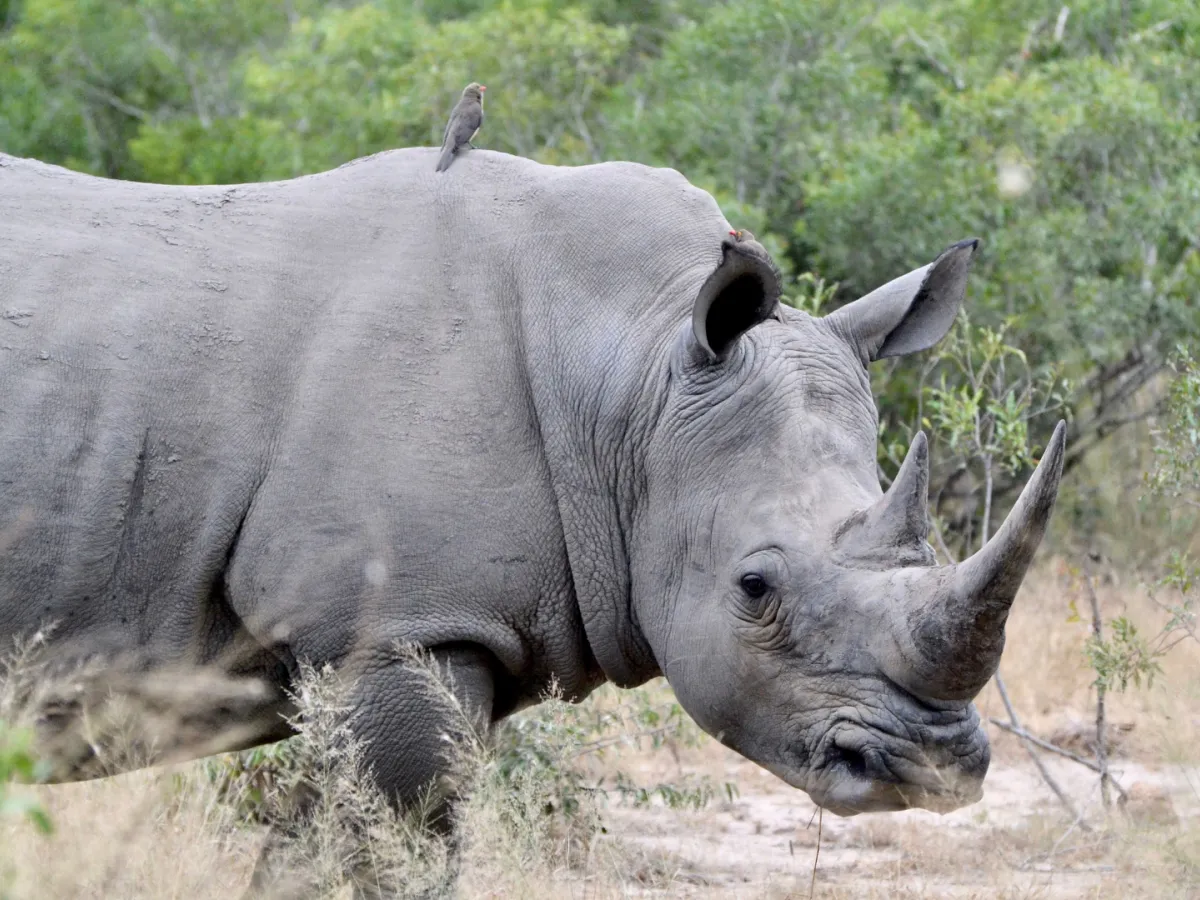
Southern white rhino in Kruger
The northern white rhino is a subspecies of the white rhino or square-lipped rhino that used to be common in central and east Africa but has been hunted and poached to extinction in the wild. Until 2018, only three individual northern white rhinos remained alive, in captivity. Scientists tried unsuccessfully to get these last three individuals to breed. Sadly, the old male Sudan died in 2018 at a conservancy in Kenya. The only remaining hope for this sub-species is in-vitro fertilization using Sudan's preserved sperm.
The death of Sudan placed the spotlight again on rhino conservation, and the desperate plight of the remaining rhino species, all of which are critically endangered. Rhinos have no natural enemies in the wild. Humans are their only enemy. And the biggest threat to the survival of rhinos is the value of their horns, which at $100,000/kg is now worth more than gold (by weight). It seems that the only reason rhino horn is valued so much is because of a false rumour that a Vietnamese politician's cancer was cured by consuming rhino horn. The superstitious belief in parts of Asia that rhino horn has healing properties has driven up the price of rhino horn. This has caused an escalation of poaching incidents from less than 20 rhinos poached per year between 1990 and 2007, to more than 1,200 rhinos poached during 2014.
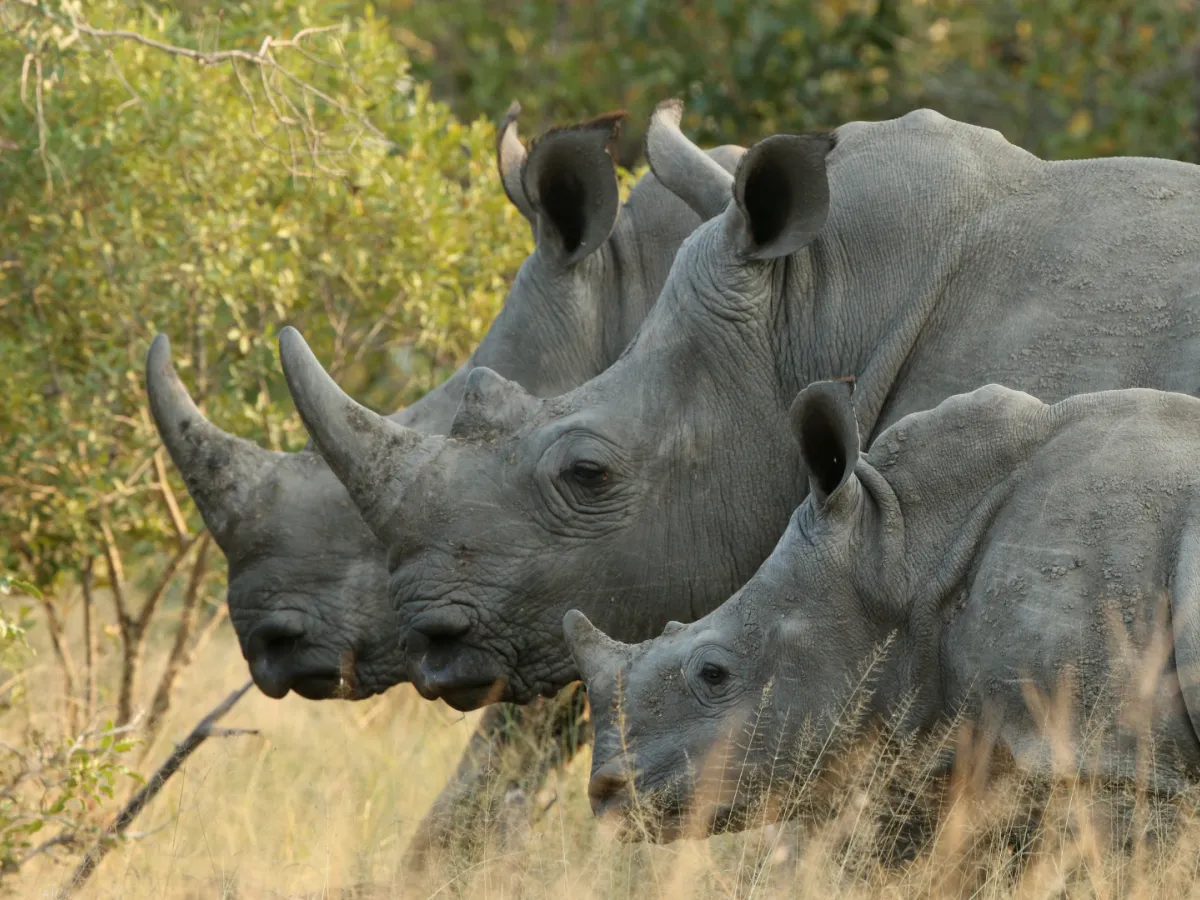
A crash of rhinos
Fortunately, there are still many places where you can see white and black rhinos in the wild. In South Africa, the southern Kruger National Park, as well as the Hluhluwe-iMfolozi game reserve, are two of the best places where you can see white or black rhinoceros. Namibia's Etosha National Park has healthy populations of black rhino. In Botswana, Zimbabwe and Zambia you need to be very lucky to see any rhinos. Most guests do not get to see rhinos in these countries, although recently a number of rhinos were reintroduced to the Moremi Game Reserve in Botswana's Okavango Delta region.
Against this background, it is such a privilege to see a rhino in the wild, and the good news is this: Our 2017 game viewing statistics show that our guests have been able to see rhinos on every one of our Kruger Park open vehicle safaris. We still cannot guarantee that you will see rhinos, but so far we have been very lucky, and no guests have returned from a Kruger Park safari of three days or longer without having seen rhinoceros. The question is, will our children and grandchildren still be able to see rhinos in the wild?
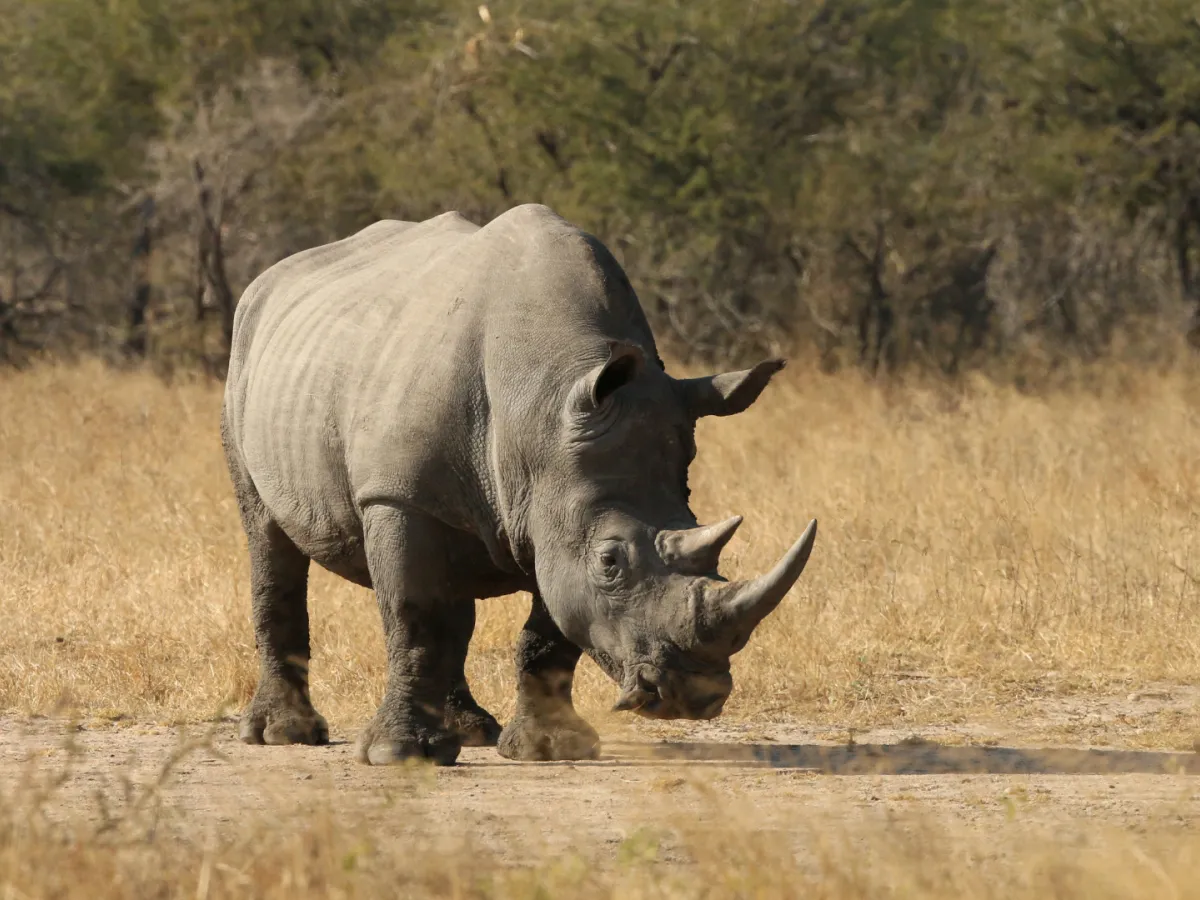
Last chance to see?
Some interesting rhino facts:
- A herd of rhino is called a crash of rhino.
- Rhino horn is made of keratin - the same protein found in hair, nails and animal hooves. It has no healing properties or health benefits.
- Some reserves have resorted to dehorning their rhino to prevent poaching. The horn grows back slowly, just like a fingernail.
- The names black rhino and white rhino have nothing to do with their colour. "White rhino" was originally derived from the Dutch word for wide, referring to the animal's wide or square-lipped mouth.
- Of the big five (elephant, rhino, lion, leopard, buffalo), the rhino is the least dangerous to approach on foot. Tracking rhino on foot is a popular and exhilarating experience.
KRUGER PARK UPDATE 4 January 2022
Rhino poaching incidents plunged 33% in 2020 to a near 10-year low as a result of lockdown measures in response to the coronavirus pandemic. Restrictions on international and local travel hindered the movement of poachers and their illicit trade in rhino horns. When travel restrictions were lifted at the end of 2020 and the demand from international markets for rhino horn resumed, South Africa's Kruger National Park saw a serious rise in the number of rhino poaching incidents. The situation is compounded by the fact that game reserves, faced with tighter budgets due to the unprecedented drop in revenue caused by lockdowns, have had to cut back on their funding of anti-poaching measures.
You may also want to look at
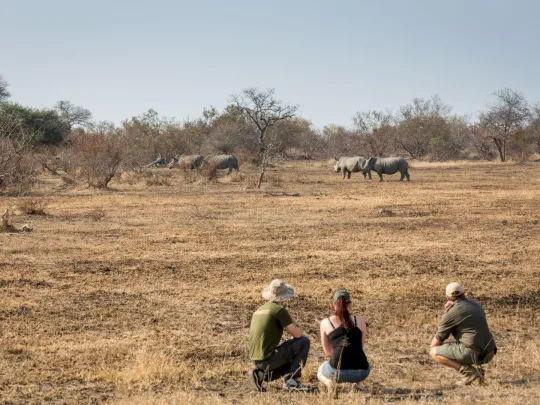
3 to 4-Day Flexible Walking Safari – Greater Kruger
Experience the African wilderness up close on a flexible walking safari that combines guided bush walks with open-vehicle game drives. This three- or four-day safari in the Greater Kruger Park offers a balance between immersive bush walks and classic game viewing, giving you the flexibility to choose your daily activities based on your interests, fitness level, and group preferences.
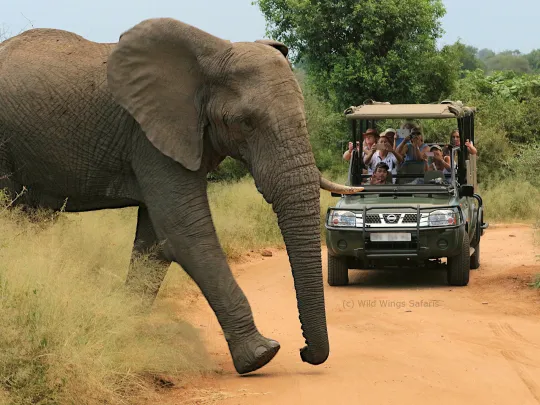
3 Day Kruger Park Safari
Our popular 3 Day Kruger Park Safari is designed for those who want a quick and affordable way to experience the incredible wildlife of the Kruger National Park in the company of an expert guide. With regular scheduled departures from Johannesburg or Nelspruit, custom departure dates and private departures can also be arranged on request. Book early to avoid disappointment!
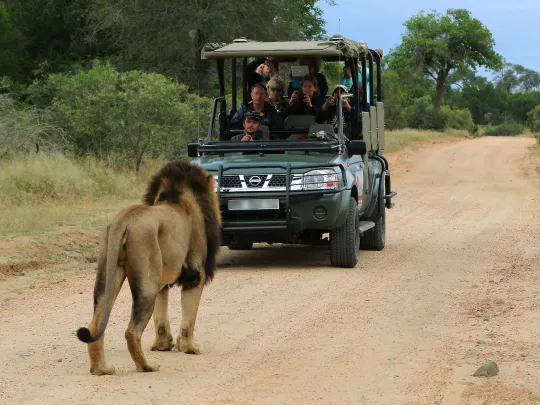
4 Day Kruger Park Budget Safari
Our 4 Day Kruger Park Budget Safari is a cost-effective yet authentic way to experience South Africa's most famous wildlife destination. This small-group safari departs regularly from Johannesburg or Nelspruit, offering expert-guided open-vehicle game drives and comfortable en-suite accommodation inside Kruger National Park. Book early to secure your spot!
About the author

Onne Vegter is the managing director of Wild Wings Safaris. He has a deep love for Africa's people, wildlife and natural heritage. Having travelled extensively to Africa's top safari destinations, his writing is based on his personal travel adventures and decades of experience in the safari industry. Follow him on X at @OnneVegter.









